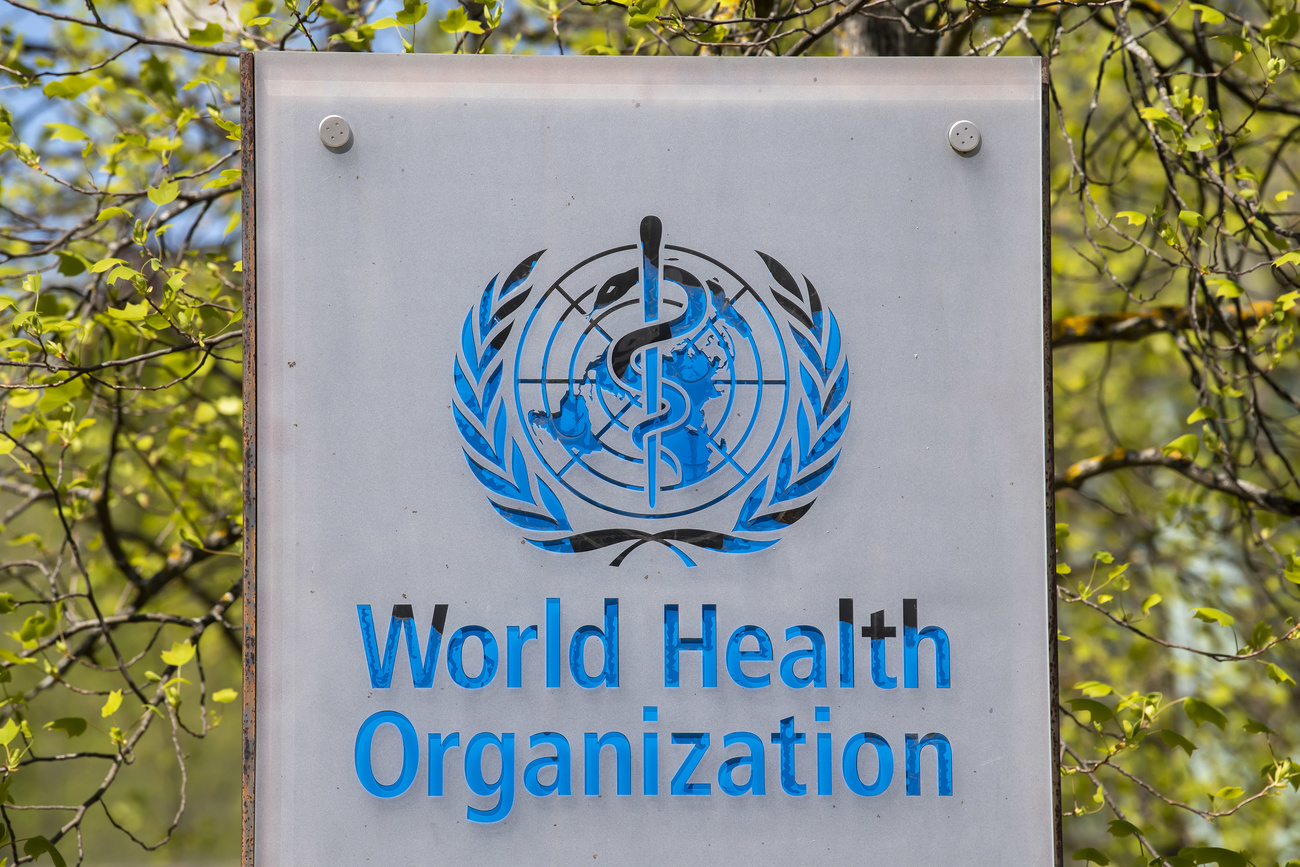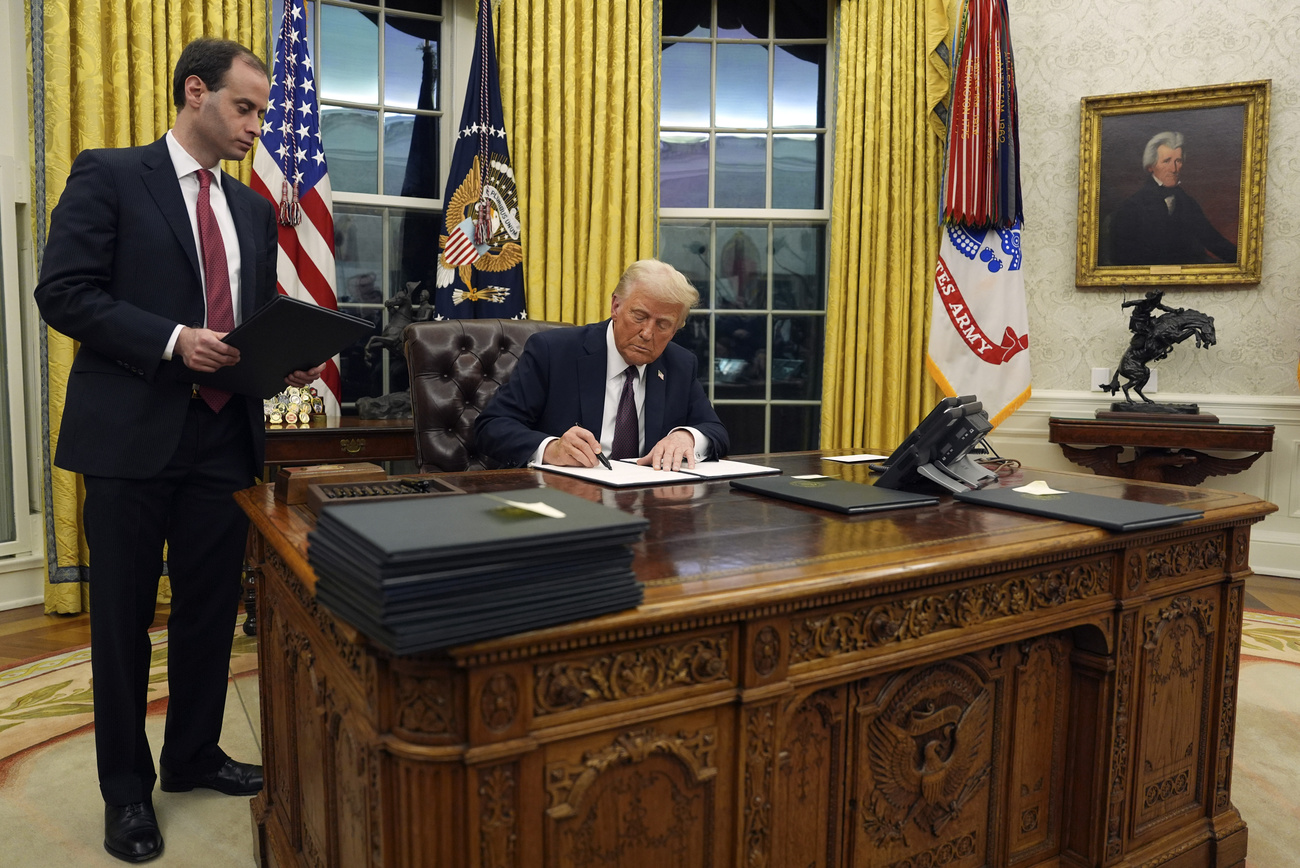
WHO members agree to 20% rise in mandatory contributions

World Health Organization (WHO) member states have agreed in committee talks to raise their mandatory contributions by 20% from 2026. If the resolution is backed in the plenary session, the organisation’s budget for 2026-2027 will rise to CHF4.2 billion ($5.1 billion).
+ Get the most important news from Switzerland in your inbox
“Thank you,” said WHO Director-General Tedros Adhanom Ghebreyesus on Tuesday, addressing member states after they backed a plan to gradually raise mandatory contributions to 50% of the organisation’s core budget by 2030-2031. The decision covering 2026 and 2027 is expected to provide an interim boost of around $90 million.

More
US withdrawal from WHO puts global health in jeopardy
Switzerland is set to increase its budget from CHF6.5 million to around CHF7 million next year. On top of that, Swiss Interior Minister Elisabeth Baume-Schneider announced on Monday that the country will contribute an additional $80 million in voluntary funding for the 2025-2028 period.
On Tuesday, Switzerland’s ambassador for global health, Barbara Schedler Fischer, reaffirmed the country’s support for the reforms led by Dr Tedros, despite financial pressures caused by the planned US withdrawal next January. She stressed that the WHO should focus on its core responsibilities, setting global health standards and supporting countries on the ground.
+ Pandemic treaty comes as welcome sign of multilateralism
Dr Tedros has announced plans to cut the organisation’s senior management team from 14 to 7 members and reduce the number of departments from 76 to 34. The agency is facing a major funding gap and needs to raise around $600 million by the end of the year, and more than $1.6 billion to cover the 2026-2027 period.
The draft budget for 2026-2027 has been cut from $5.3 billion to $4.2 billion, forcing the WHO to scale back some of its activities. Speaking on Monday, Dr Tedros called the funding “extremely modest”. “Either we reduce what this organisation is and what it does, or we give it more money,” he warned.
On Tuesday evening, several governments, including Switzerland, along with a number of foundations, pledged at least an extra $170 million. That figure doesn’t include China’s separate announcement just hours earlier, promising $500 million over five years to support other WHO member states.
Translated from French with DeepL/sp
We select the most relevant news for an international audience and use automatic translation tools to translate them into English. A journalist then reviews the translation for clarity and accuracy before publication.
Providing you with automatically translated news gives us the time to write more in-depth articles. The news stories we select have been written and carefully fact-checked by an external editorial team from news agencies such as Bloomberg or Keystone.
If you have any questions about how we work, write to us at english@swissinfo.ch

In compliance with the JTI standards
More: SWI swissinfo.ch certified by the Journalism Trust Initiative



























You can find an overview of ongoing debates with our journalists here . Please join us!
If you want to start a conversation about a topic raised in this article or want to report factual errors, email us at english@swissinfo.ch.